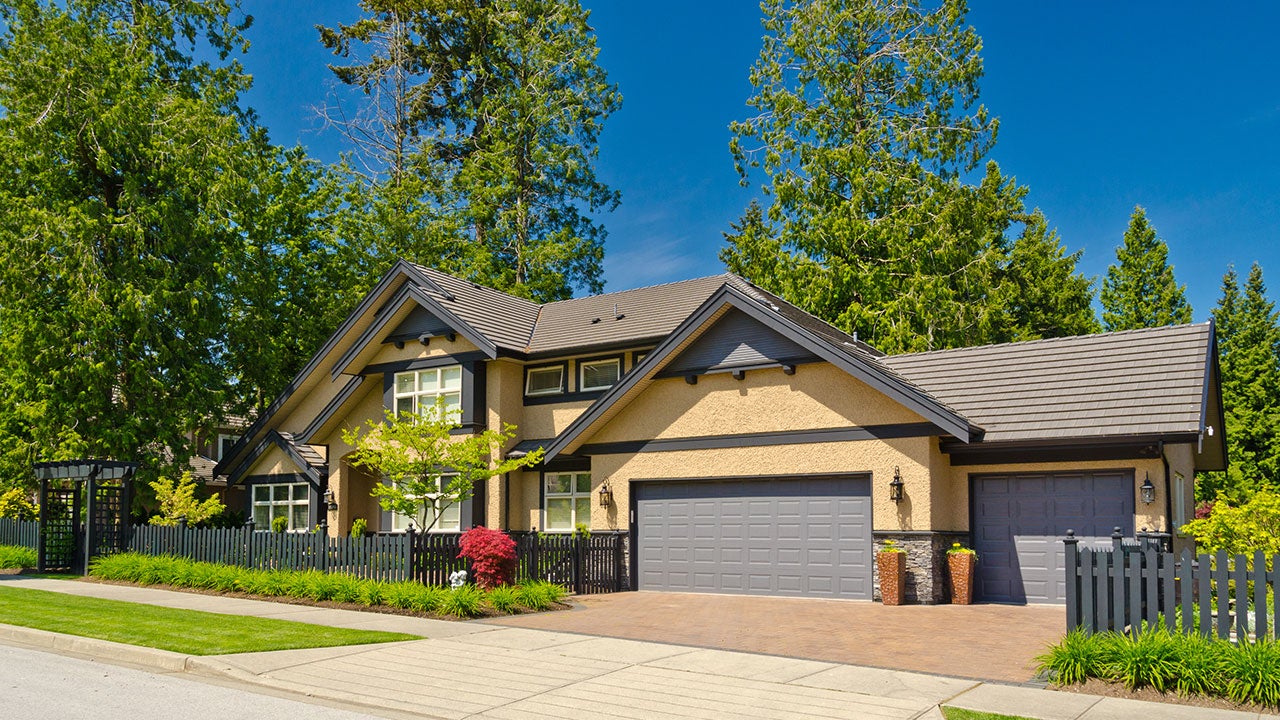What is an FHA loan?

Key takeaways
- FHA loans are a type of mortgage geared toward borrowers with lower credit scores or who otherwise don’t qualify for a conventional loan.
- You can use an FHA loan to buy, build or renovate a home, or to refinance an existing mortgage.
- FHA loans require a minimum down payment of 3.5 percent for those with credit scores of 580 and up.
What is an FHA loan?
An FHA loan is a mortgage that is insured by the Federal Housing Administration (FHA) and offered by private FHA mortgage lenders. FHA loans often have less strict requirements than conventional loans, making them popular with first-time homebuyers and younger buyers.
How do FHA loans work?
FHA loans work like most other mortgages, only they’re backed by the federal government. This doesn’t mean that the government provides the funds directly to borrowers, however. FHA loans are widely available from private lenders, who can offer these loans to borrowers with lower credit scores and more debt, knowing that the government will protect part of their investment in the case of default.
However, to further help offset the risk, FHA borrowers must pay upfront and annual mortgage insurance premiums, or MIP. This protects the lender if you were to stop repaying your loan.
You’ll also pay closing costs for an FHA loan, such as appraisal and origination fees. The FHA allows home sellers, a home builder or a mortgage lender to cover up to 6 percent of these costs.
In terms of options, FHA loans are similar to conventional loans. You can choose either a fixed or adjustable interest rate and a loan term for a set number of years: 15 or 30.
Current FHA loan rates
FHA loan rates are competitive with, and often slightly lower than, rates for conventional loans. For example, the national average rate for a 30-year FHA loan, according to Bankrate data, is currently 6.56 percent. Meanwhile, the national average rate for a 30-year conventional loan is currently 6.64 percent.
FHA loan requirements
Here’s an overview of the requirements for an FHA loan:
- FHA credit score: You can qualify for an FHA loan with a credit score of at least 580 if you can make a 3.5 percent down payment. If you have a minimum 500 score, you’ll need a 10 percent down payment. Individual lenders may require higher scores.
- FHA down payment: You’ll need to put at least 3.5 or 10 percent down, depending on your credit score. You may be eligible for down payment assistance to help cover the cost.
- FHA debt-to-income (DTI) ratio: No more than 31 percent of your income should go toward mortgage payments, and no more than 43 percent of your income should go to debt payments overall — though some lenders will allow higher ratios if, for example, you can make a large down payment.
- FHA occupancy rules: You can take out an FHA loan to buy a primary residence with between one and four units.
- FHA MIP: MIP involves an upfront premium of 1.75 percent of the loan principal, typically paid at closing, plus annual premiums. These may be between 0.15 and 0.75 percent of your loan amount — depending on your down payment, loan amount and loan term — and are usually paid monthly.
- FHA inspection and property requirements: To get an FHA loan, a HUD-approved appraiser must assess the property’s market value and verify that it meets HUD’s basic standards. These include being structurally sound and having adequate drainage, as well as working heating, plumbing and electrical systems and adequate lighting and ventilation, among other requirements.
- FHA loan limits: In 2025, you can borrow between $524,225 and $1,209,750 for a single-family home with an FHA loan, depending on your location.
Types of FHA loans
There are several types of FHA loans, including:
- Basic home mortgage loan or 203(b) loan: The 203(b) loan is the FHA’s main home loan program for buying a home or refinancing.
- Rehabilitation mortgage or 203(k) loan: An FHA 203(k) loan covers the home’s purchase price and repairs. This type of FHA construction loan comes in Standard and Limited options, which cover different types of renovations and have different loan limits. These loans are best for someone buying a fixer-upper.
- Disaster victim mortgage or 203(h) loan: If you’ve lost your home due to a presidentially designated disaster and need to rebuild or buy a new home, you could qualify for an FHA 203(h) loan with no down payment.
- Home equity conversion mortgage (HECM): A HECM is a reverse mortgage insured by the FHA that allows those over the age of 62 to tap the equity in their home as tax-free income. There are downsides to reverse mortgages, but they can be a helpful financial tool for those looking to supplement retirement income.
- Energy–efficient mortgage (EEM): This is a mortgage designed for the purchase of an energy-efficient home, or to upgrade a home to make it more energy-efficient. These upgrades might include insulation, solar panels or energy-efficient appliances.
- Graduated payment mortgage or 245(a) loan: This uncommon type of mortgage comes with payments that start small and increase over time. They’re most often used by those who expect to make more money in the future.
Your financial journey starts here
Get the latest financial insights, reviews and information to help you save, invest and grow your money with confidence.
Welcome to smarter financial decisions.
You’re all set to receive the latest financial insights, reviews, and information from Bankrate. Let’s make smarter money moves together.
Pros and cons of FHA loans
Pros of FHA mortgages
- You can have a lower credit score: An FHA loan provides a mortgage option for borrowers with credit scores as low as 580 or 500, depending on the size of the down payment.
- You can make a low down payment: With a credit score of at least 580, you can make a down payment of as little as 3.5 percent.
- You can own a home sooner: Since FHA loans are easier to qualify for, you might be able to get into a home and start building equity sooner.
Cons of FHA mortgages
- You won’t be able to avoid mortgage insurance: Everyone pays upfront mortgage insurance premiums (MIP) with an FHA loan. If you put down less than 10 percent, you’ll pay annual MIP for the life of the loan. If you put down at least 10 percent, you’ll pay annual MIP for 11 years, or until you refinance or sell.
- You’ll have to meet property requirements: FHA mortgages are not allowed to exceed certain amounts, which vary based on location. You have to live in the property, too: FHA loans aren’t designed for second homes or investment properties.
- You could pay more: When you compare mortgage rates between FHA and conventional loans, you might notice lower FHA interest rates but higher annual percentage rates, or APRs. The APR represents the total cost of borrowing, including fees and points.
Is an FHA loan right for you?
There are a few scenarios when an FHA loan could work in your favor, such as:
- People with lower credit scores: If your credit score is on the lower side, and you don’t need a very large loan, an FHA loan is a great option. It can help you get into a home more quickly, with a lower down payment. However, FHA loans can be costlier than conventional loans, thanks to the mortgage insurance premiums.
- First-time homebuyers: It can take years to save up for a down payment, build your credit and buy a home. But because FHA loans have more lenient credit and down payment requirements, you might not have to wait as long to purchase your first home.
- Borrowers who can’t afford a large down payment: While you can put down as little as 3 percent with a conventional loan, you’ll generally need a higher credit score to do so. However, with an FHA loan, you still only need to put down 3.5 percent — even with a credit score as low as 580.
With that said, if your credit score is at least 620, you’re almost always better off with a conventional loan. You won’t have to pay mortgage insurance for the entire loan term — you can cancel PMI when you accumulate 20 percent equity in your home.
FAQ
Why we ask for feedback Your feedback helps us improve our content and services. It takes less than a minute to complete.
Your responses are anonymous and will only be used for improving our website.







